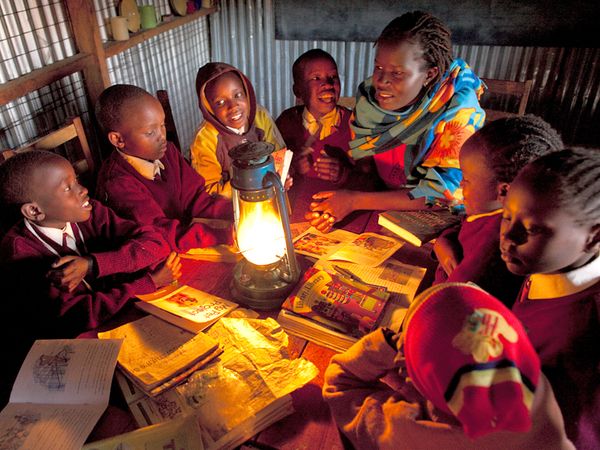Hero #096: Kakenya Ntaiya … (02/27/16)
Despite free primary education being mandated 10 years ago by the Kenyan government, educating girls is still not a priority for the rural Maasai culture. According to the Kenyan government, only 11% of Maasai girls in Kenya finish primary school. In addition, even though the practices of genital mutilation and child marriage are now illegal in Kenya, officials acknowledge that they still go on, especially in rural tribal areas. As Kakenya Ntaiya was preparing to endure the painful ritual of “female circumcision” in 1993, she developed a plan, negotiating a deal with her father — threatening to run away from home unless he promised she could finish high school after the ceremony. She knew that once the cutting was complete, she was going to be married off, and her dreams of becoming a teacher were going to be cut off as well.
Well, her bold move paid off … her father upheld his end of the deal and she was indeed allowed to go to high school, where she excelled; earning a college scholarship in the United States. Her community held a fundraiser to raise money for her airfare, and before she left she promised she would return and help the village.
Over the decade that followed, Kakenya earned her degree, a job at the United Nations and a doctorate in education. She returned to her village as promised, and opened the first primary school for girls in her village in 2009, the Kakenya Center for Excellence. Today, she is helping more than 150 girls receive the education and opportunities that she had to sacrifice so much to attain. Just 5 years old, the school already ranks among the top in its district, and each year more than 100 girls apply for the 30 spots available in each new class. Parents who enroll their daughters must agree that they will not be subjected to genital mutilation or early marriage.
“I came back so girls don’t have to negotiate like I did to achieve their dreams. That’s why I wake up every morning.” ~ Kakenya Ntaiya





 ;
;